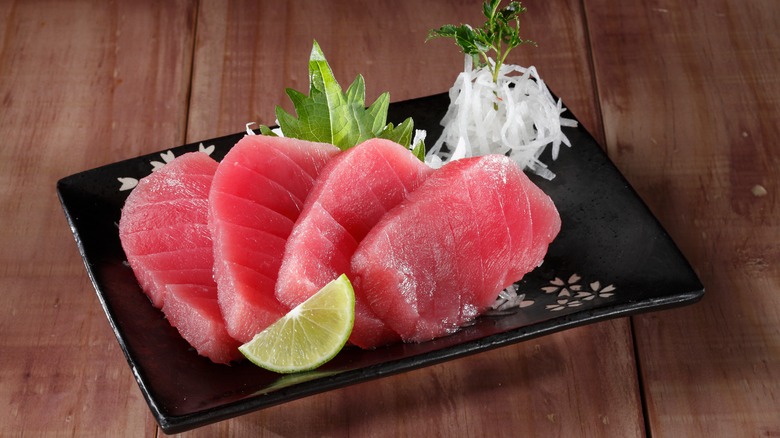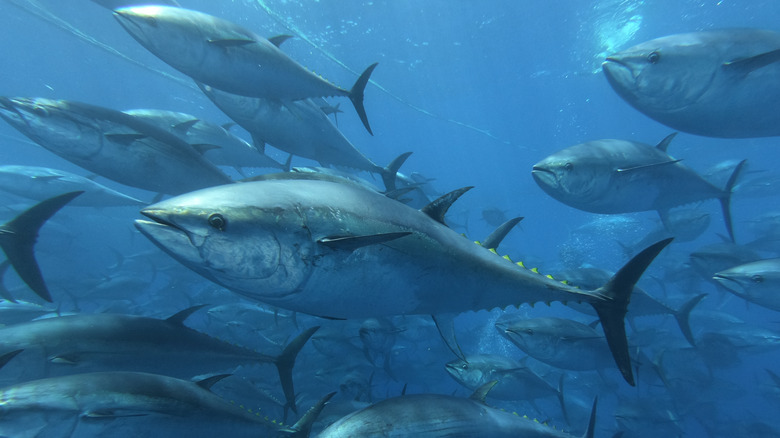Climate Change Is Putting Japan's Tuna Sashimi At Risk
One-by-one it seems like climate change is impacting our favorite foods, and if you love tuna sashimi, you can add that to the list now too. Rising global temperatures are altering entire ecosystems, meaning there are fewer spots to grow certain products. Indeed, wine grapes and cacao are made into some of our favorite treats and form the basis of billion-dollar industries.
However, climate change could decimate the world's chocolate supply and initiate the loss of wine in the next 50 years. Sadly, it's not just luxury treats either, as Columbia says staple crops like corn and wheat could see a 20% or more drop in production from heat and lack of rain, problems that are also hurting the rice used to roll up your favorite sushi.
Fish are already among the food supplies hit hard by climate change. Fortune reports that rising sea temperatures are slowing the recovery of already overfished populations and leading to the unprecedented canceling of harvests from major seafood sources like Alaskan crab and New England cod. Some species like Chinook salmon are even at risk of extinction as drought and high water temperatures destroy the habitat they need to thrive.
For a seafood-loving culture like Japan, the climate-change disruption could have a devastating impact on their cuisine, and unfortunately, fishermen from the east Asian island chain are already noticing a problem.
Warm seas are changing the nature of Japan's tuna catch
Tuna, squid, and salmon are mainstays of the Japanese diet, and familiar sights at any sushi restaurant stateside, but The Guardian reports that catches have been getting both smaller in quantity and lower in quality.
In Kochi prefecture, overly fatty skipjack tuna are likely the result of rising sea temperatures increasing their food supply, as the winter measurements have risen by two degrees Celsius over the past four decades. While bigger tuna may seem like a boon, changing temperatures could eventually deplete mineral-rich water and drive fish used to colder temperatures farther north, something already happening to the region's yellowtail and mackerel.
Sadly, tuna isn't the only sushi fish being hurt by rising temperatures, as simulations show salmon could be driven away from Japan's northern shores completely, and ocean acidification is inhibiting the growth of shellfish like scallops and clams. These trends are likely to continue for decades as well, with the Marine Stewardship Council saying ocean temperatures are predicted to rise a further one to four degrees Celsius by 2100.
All these changes mean it is more important than ever to make sure fishing is done in a sustainable way that allows fish populations to recover. If we don't, we could see the end of sushi, and that is a world we don't ever want to experience.

